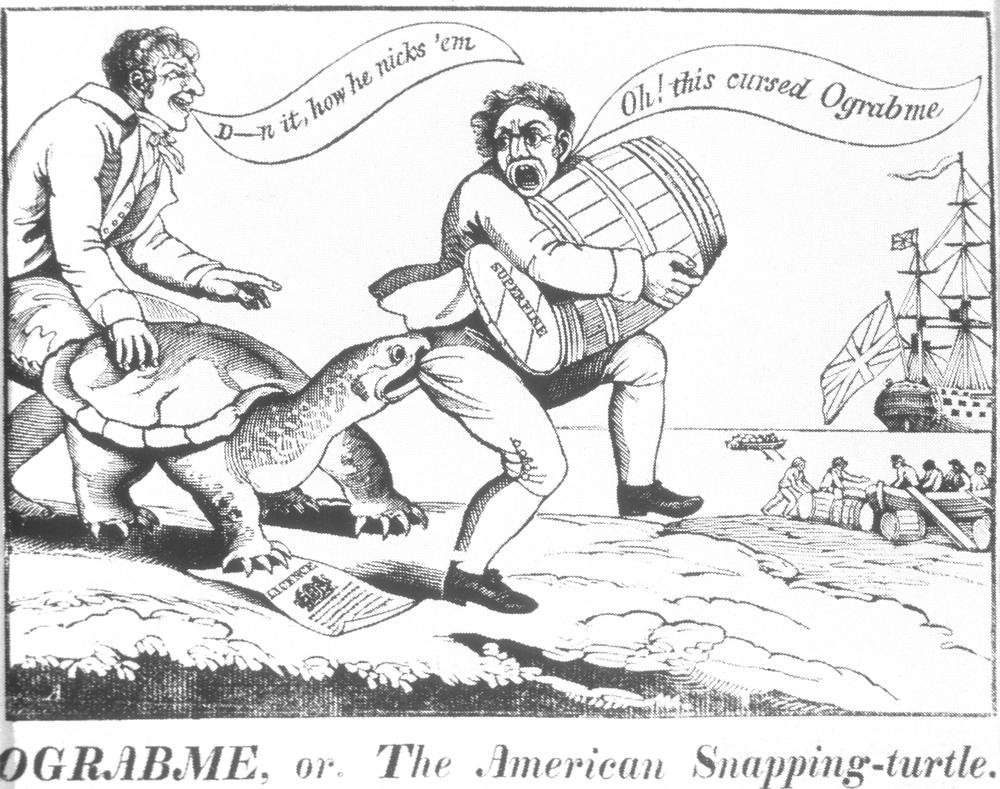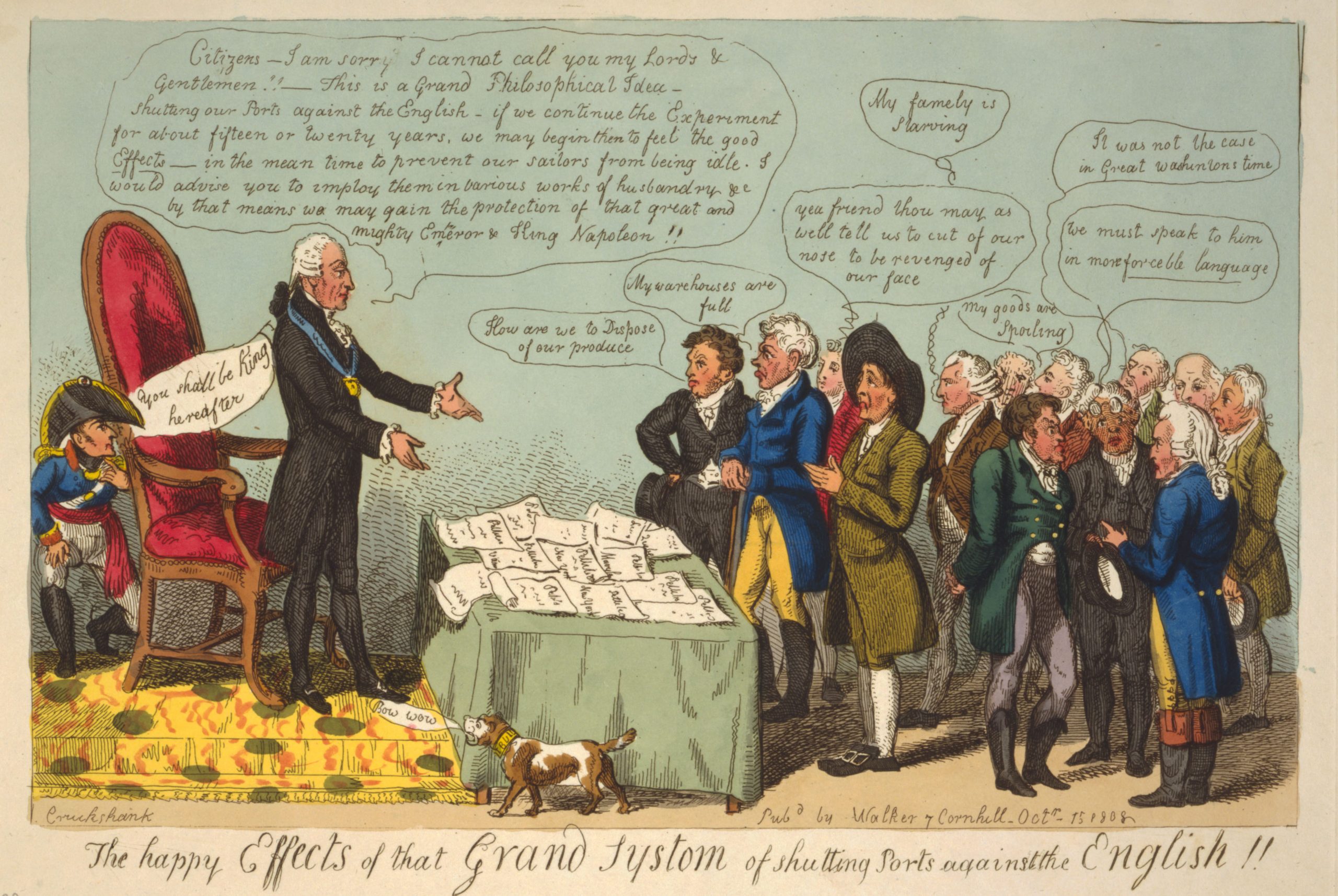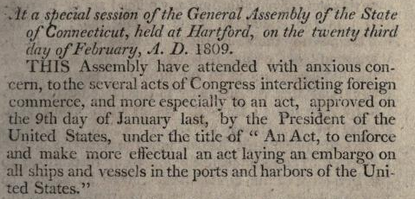
The Embargo Act of 1807 was a general trade embargo on foreign nations enacted by the United States Congress. It represented an attempt by President Thomas Jefferson and the U.S. Congress to coerce Great Britain into stopping the impressment of American sailors and to respect American sovereignty and neutrality. To many, the embargo proved to be a complete failure. It did not improve the American diplomatic position, highlighted American weakness, and damaged the American economy. Both widespread evasion of the embargo and Britain’s opportunities to trade with other nations reduced its intended impact. The embargo undermined American unity by provoking bitter protests, particularly in New England commercial centers. Support for the declining Federalist Party, which intensely opposed Jefferson, temporarily rebounded and drove electoral gains in the Senate and House in 1808. Replacement legislation for the ineffective embargo was enacted on March 1, 1809, in the last days of Jefferson’s presidency. Tensions with Britain continued to grow and eventually led to the War of 1812.

Article about the Embargo Act of 1807 with accompanying worksheet, Ed Dorgan. 2022.
D2: Resources
“Ograbme, or The American Snapping-turtle.” 1807.
Courtesy Presidential Campaigns: A Cartoon History, 1789-1976, Indiana University, Bloomington.

“The happy effects of that grand systom [sic] of shutting ports against the English!! / Cruikshank.” 1808. Library of Congress Prints and Photographs Division Washington, D.C.
D2: Resources
“At a special session of the General Assembly of the State of Connecticut, held at Hartford, on the twenty third day of February, A.D. 1809 … An address of the General Assembly, to the people of Connecticut.” (pages 7 & 8) Internet Archive, courtesy Brock University.
D2: Resources
Library of Congress Primary Source Analysis Tool
D2: Resources
Library of Congress Teacher’s Guide: Analyzing Political Cartoons
Note: Students should conduct this inquiry following a preliminary study of the United States Constitution and the “Supremacy Clause” (Article 6, 2nd paragraph).
1. Explore the compelling question, “When can a U.S. state refuse to follow a federal law?” by asking students to answer the following questions with a partner:
Which laws are superior: state or federal? (explain why)
What can a state government do to resist an “unjust” federal law?
Are there any current examples of states contesting or pushing back against federal laws and/or U.S. Supreme Court decisions regarding those laws?
2. Next, students will read a short article about the Embargo of 1807 and analyze an 1807 political cartoon (“Ograbme”) before answering questions about both sources.
3. Then students will examine a second political cartoon from 1808 (“The happy Effects of that Grand System of shutting Ports against the English!”) and complete the Library of Congress political cartoon analysis worksheet. You may find the Library of Congress Teacher Guide useful in guiding students through this analysis.
4. Working with a partner, students will read and annotate the “Address of the General Assembly of the State of Connecticut, 23rd February 1809” (pages 7 & 8) and complete the Library of Congress document analysis worksheet.